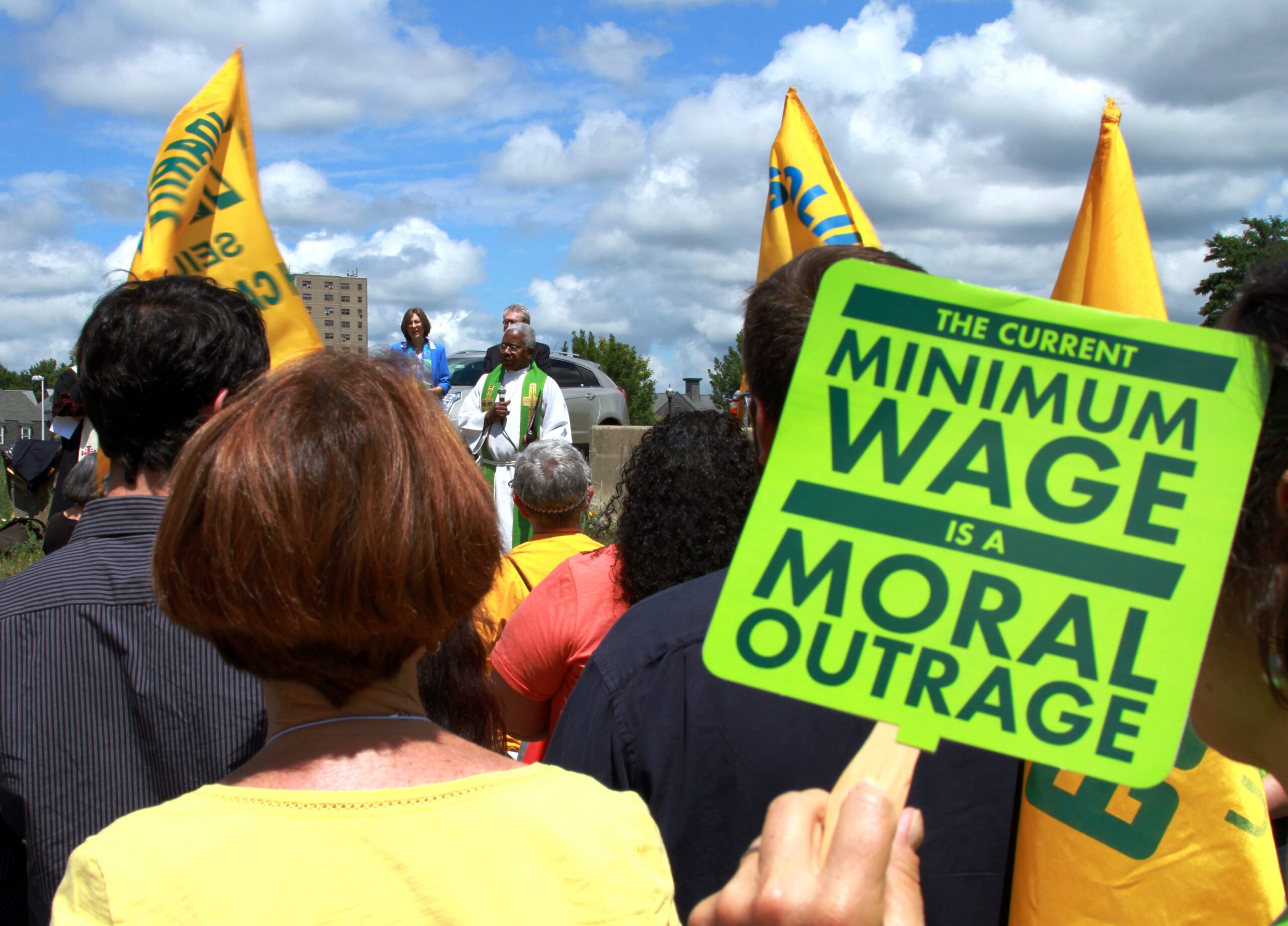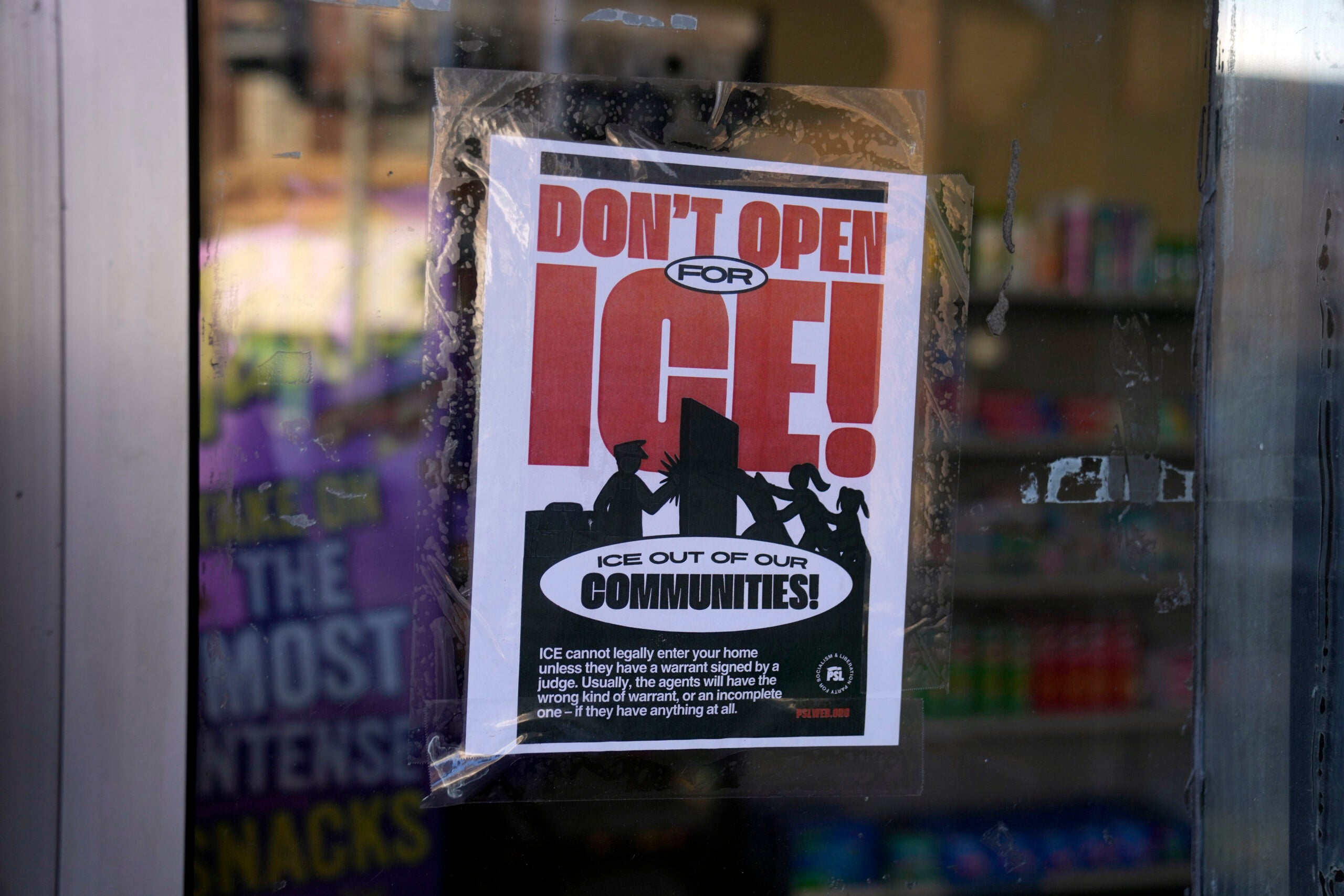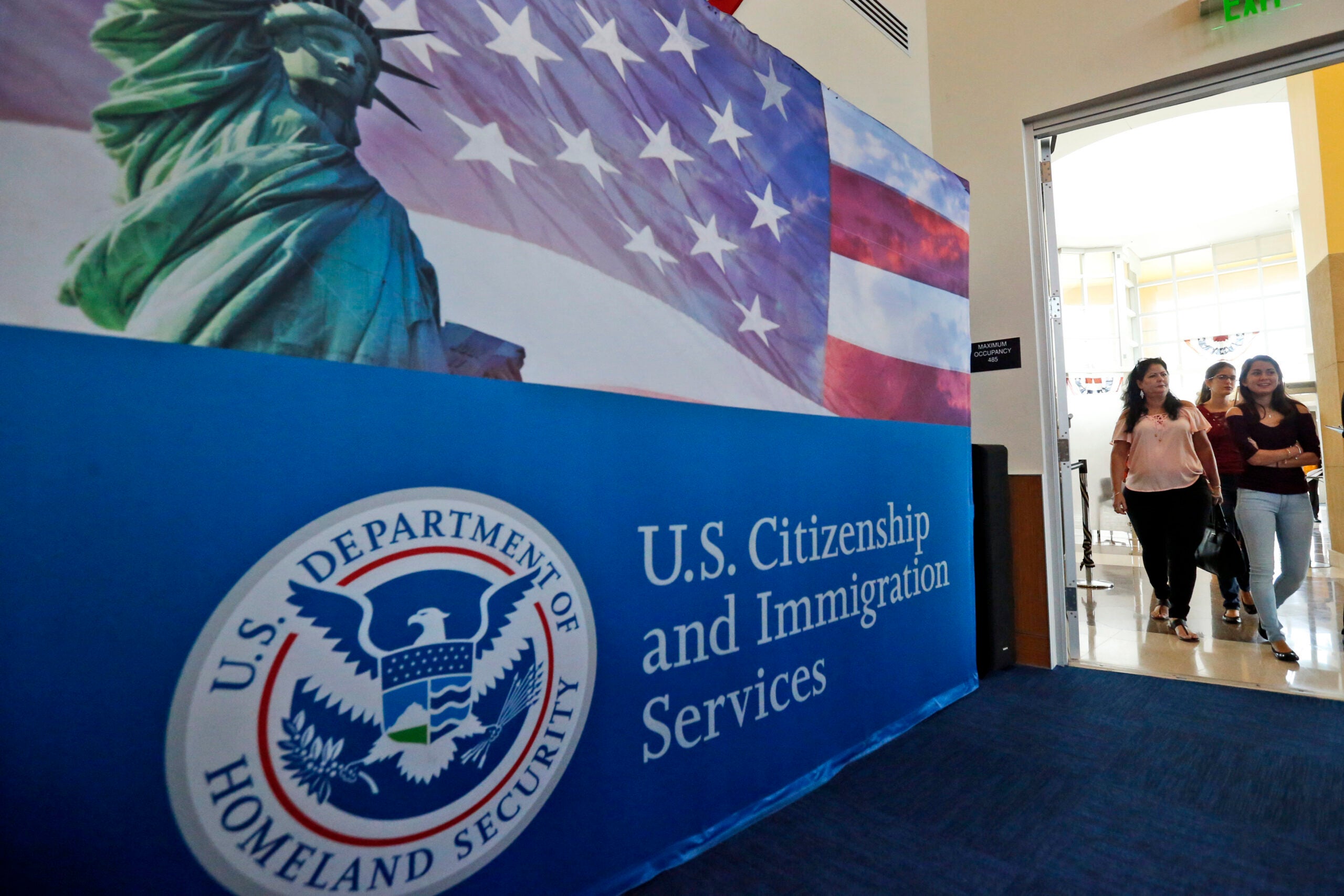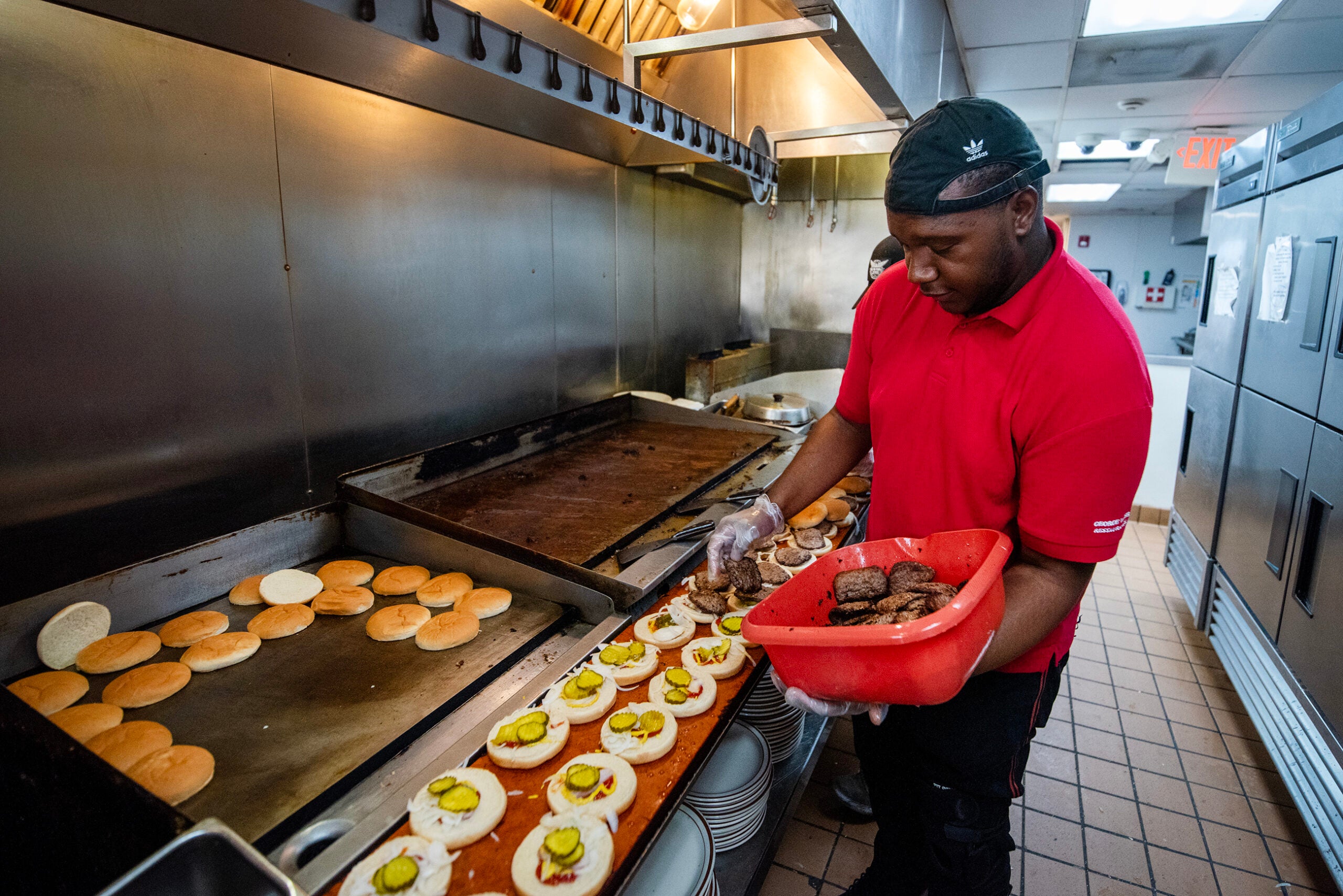The federal minimum wage hasn’t been increased since 2009, and while some advocates are still pushing for a $15 minimum wage despite recent efforts being stymied by the U.S. Senate, one economist is saying more modest increases are a better course of action in Wisconsin.
The rate has stayed consistent in the state with the federal minimum wage of $7.25 an hour. Workers earning minimum wage who work 2,000 hours a year — 40 hours for 50 weeks — make about $14,500 before taxes and work expenses.
“That’s just about enough to keep one single person out of poverty,” said economist Tim Smeeding, a professor of public affairs and economics at the La Follette School of Public Affairs at the University of Wisconsin-Madison.
News with a little more humanity
WPR’s “Wisconsin Today” newsletter keeps you connected to the state you love without feeling overwhelmed. No paywall. No agenda. No corporate filter.
Add a child or two into the mix, and there’s no way to support the family and get out of poverty, he said.
President Joe Biden and his administration have been vocal about their support for a $15 minimum wage, and have included it in a $1.9 trillion coronavirus relief package. But last week, the U.S. Senate opted not to allow a measure that would increase it, at least for now.
Opponents of the increase, which in some states is more than double the current rate, say raising wages that much would result in job losses and price increases in goods and services. Smeeding is an advocate for increasing the minimum wage, but not necessarily to $15 an hour. Instead, he suggests the state take a similar approach to Illinois and raise it incrementally each year.
“I don’t think the effects are going to be terribly great if we went to $10 or $11 an hour, for instance, in Wisconsin,” he said in a conversation with Kate Archer Kent on WPR’s “The Morning Show.”
The interview has been edited for brevity and clarity.
Kate Archer Kent: Start us out, Tim, if you will, with where we are now at $7.25 and explain how that was set.
Tim Smeeding: It got set in the Fair Minimum Wage Act of 2007, which increased the minimum wage in three steps to $7.25 by 2009. Now, that was 11 years ago. That’s a long time to have the minimum wage stay at the same level. And in terms of inflation-adjusted wages, it’s much lower now.
Now, 29 states and the District of Columbia and localities within states have a minimum wage that’s higher than the federal minimum, and 22 of these are at or above $10 an hour. Eight states are scheduled to move to $15 an hour over the next five and six years, including Florida.
At 5:30 Friday morning, the U.S. Senate passed a relief bill that did not include the $15 per hour minimum wage. We won’t have a national $15 minimum wage for a while, but there’s a lot of distance between $7.25 and $15.
It’s still possible that in the House, who gets the bill now could go for something like $12, which would make a huge difference in Wisconsin, for instance.
KAK: So the last time that $7.25 was on the horizon here was 2009, following another time of upheaval in our economy, the Great Recession. As you view our economy at this stage in the pandemic, why is this moment the right time to raise the federal minimum wage?
TS: Well, there is a lot of popular support for it. And I don’t see it as creating a lot of problems if we step into — over the next four or five years — something like $12 or $13 an hour.
I think that more people will want to go to work and more people will offer more work hours. And if it’s lower income people — 40 percent of minimum wage-earning people live in households that are poor or near poor, that’s going to mean we’re going to spend less on FoodShare, less on public housing, because as they earn more and they keep more — then the targeted program costs go down. I think that’s quite good.
KAK: What have you seen with the minimum wage in Wisconsin?
TS: Well, in Wisconsin, it’s really led to a shortage of workers in critical areas like elder care or in retail services and other areas. The closer you live to another community that’s paying a higher minimum wage, the more you’re going to have to pay.
Gov. Tony Evers made a proposal in 2019 to gradually raise the minimum wage to $10.50. It would have benefited a lot of workers and it never saw the light of day in the Legislature.
Now, Wisconsin’s median wage is about $19 an hour and our average is $23 an hour. Going to $15 would be hard, but the idea that we couldn’t get to $10, $11 or $12 doesn’t make any sense to me. I think we could do that without any big job losses.
In 2014, the Congressional Budget Office said that if you raise the minimum wage to $10.25, a million people will lose their jobs but 30 million would get a pay increase. Last year, they said if you raise the minimum wage to $12 an hour, that fewer than one million would lose their jobs and 25 million would get a raise.
Minimum wage in Minnesota today is $10.08 an hour for large employers. In Minneapolis, it’s $13 an hour for large employers. In Illinois, it’s $11 an hour now and it’s going to go up to $15 by 2025. For people who are living in La Crosse and Kenosha (near the borders of Minnesota and Illinois, respectively), I know where they’re going to go to work and it’s not going to be in Wisconsin.
Wisconsin Public Radio, © Copyright 2025, Board of Regents of the University of Wisconsin System and Wisconsin Educational Communications Board.







